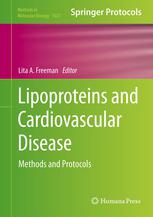

Most ebook files are in PDF format, so you can easily read them using various software such as Foxit Reader or directly on the Google Chrome browser.
Some ebook files are released by publishers in other formats such as .awz, .mobi, .epub, .fb2, etc. You may need to install specific software to read these formats on mobile/PC, such as Calibre.
Please read the tutorial at this link. https://ebooknice.com/page/post?id=faq
We offer FREE conversion to the popular formats you request; however, this may take some time. Therefore, right after payment, please email us, and we will try to provide the service as quickly as possible.
For some exceptional file formats or broken links (if any), please refrain from opening any disputes. Instead, email us first, and we will try to assist within a maximum of 6 hours.
EbookNice Team

Status:
Available5.0
7 reviewsThe lipid-rich and otherwise challenging nature of many key tissues complicates many aspects of current research, and applications of the unique nature of lipoproteins and their biological effects has engendered unique and vital methodologies. In Lipoproteins and Cardiovascular Disease: Methods and Protocols, experts in the field present a compendium of advanced and classical molecular biology methods targeted towards lipoprotein, atherosclerosis, and vascular biology research, bringing together in a single volume an updated set of protocols and strategies for methods now driving the most recent advances, along with classical methods that are still widely used. Among the many topics covered in this cutting-edge work, the book delves into crucial techniques such as quantitative real-time PCR, microarrays, RT-PCR laser capture microdissection, and tissue-specific gene overexpression, knockout, and knockdown methodologies, including AAV as a liver-directed gene delivery vehicle. Written in the highly successful Methods in Molecular Biology™ series format, chapters include introductions to their respective subjects, lists of the necessary materials and reagents, step-by-step, readily reproducible laboratory protocols, and valuable notes which highlight tips on troubleshooting and avoiding known pitfalls.
Comprehensive and easy to use, Lipoproteins and Cardiovascular Disease: Methods and Protocols serves both novices and experts alike as a complete guide for any researcher with an interest in lipoproteins and their significant biological effects.